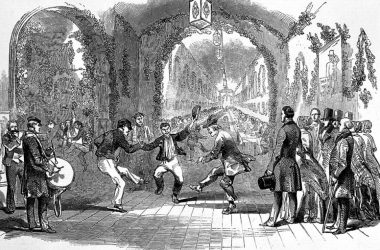The word ‘psychotherapy’ conjures up the image of a benevolent-looking therapist, clutching a clipboard, explaining how your current concerns are linked to your childhood traumas and asking, “How do you feel about that?”
In our collective imagination, this interaction takes place in a sanitised space – a white room with cushions on the couch, a box of tissues and perhaps some potted plants. Not only is this representation highly inaccurate for non-Western countries, but also, this seemingly harmless image can obscure power relations embedded in the client-therapist relationship, as well as the ways in which this power can be abused by mental health professionals.
The disciplines of psychiatry and psychotherapy have largely been dominated by cis-heterosexual, able-bodied white men. Their theories have determined what is ‘normal’ and ‘pathological’. If these principles are applied universally without considering a client’s social location, it may lead to inadvertent pathologizing of their behaviours and cultures. This has been and continues to be used as a tool of social control with the aim of having clients conform to Western societal norms.
In fact, the very premise of therapy is to help clients conform or fit into conventional standards of ‘normal’ as functioning members of society, such that they can contribute to the economy to the best of their abilities. A prime example of this is the burgeoning of corporate wellness programs aimed at providing mental health support to employees in the hopes of creating a healthier and therefore, more productive workforce.
One would pause to ask – if therapy can be used as a mechanism of social control or a tool to further capitalist interests, is it always beneficial to the very people it purports to help? More specifically in the case of marginalised communities, can conventional therapy inflict further damage?
Historically, if we look critically at the practices adopted by the man credited as the founder of psychoanalysis (or the ‘Talking Cure‘ as it is sometimes called), there are examples of grave abuses of power. Sigmund Freud initially formulated the ‘Seduction Hypothesis‘, a theory that mental health concerns experienced by women were caused by early experiences of child sexual abuse by men in their families. His theory was met with widespread outrage and scepticism. He later abandoned it in favour of the now well-known Oedipal complex, which attributes the memories of abuse and trauma to fantasies women had about their fathers when they were younger.
These instances make clear how the discipline has largely been focused on ‘treating’ the individual, instead of holding the larger systems of oppression accountable.
A more recent example of the usage of therapy as a form of social control is ‘Applied Behaviour Analysis‘ (ABA). It involved the application of behaviourist methods of conditioning on children experiencing autism. Children were ‘trained’, using a system of rewards and punishments in order to increase certain socially-acceptable behaviours and reduce other behaviours that were deemed problematic. This practice was begun by Lovaas, a mental health professional who launched the Young Autism Project, where the primary goal was to make the child appear as neuro-typical or ‘normal’ as possible. Behaviours that were encouraged included social behaviours such as hugging, or looking someone in the eye, while behaviours that were discouraged included repetitive movements that children experiencing autism often engage in, in order to manage anxiety. To decrease such behaviours, therapists in the program slapped, shouted at or even gave electrical shocks to children.
More humane variants of ABA are still being practised today, with greater emphasis on rewards rather than punishments and with a focus on decreasing only those behaviours that cause harm to the child and their family. Some therapists and families of children with autism hail ABA as the most effective way to help autistic children develop life skills. In contrast, several adults with autism vehemently advocate against it and state that it violates their rights and dignity and is based on the fundamentally ableist assumption that people on the spectrum need to be ‘fixed’. This is in line with the tenets of the neurodiversity movement that affirms neurological variations as a part of our collective human experience. Autistic self-advocates declare that no professional or expert has the right to decide which of their characteristics to keep and which to discard.
The notion that variations in human feelings and behaviours are ‘abnormal’ is reflected even in the way mental health professionals expect to ‘cure’ people who have experienced trauma. Some practitioners believe that after several sessions of psychotherapy, the survivor should be able to ‘get over’ their trauma, which then creates undue pressure and sometimes leads to re-traumatisation.
Author and activist Leah Lakshmi Piepzna speaks of the Survivor Industrial Complex, which is what she calls the “the web of institutions, practices, and beliefs that works to manage, contain, and offer resolution to survivors of sexual violence.” Her work describes how this system induces pressure on survivors to be a ‘Good Survivor’, such that they are able to work through their trauma and never speak of it or are affected by it again.
Therapists working with the expectation to ‘cure’ their clients such that they can undo the effects of trauma on their client’s mental health are influenced by ableist notions of healing. Piepzna offers alternatives to this approach when she speaks of a kind of survivor-hood where being affected by one’s trauma is not a failure and healing is not a destination, but a continuous process.
One would pause to ask – if therapy can be used as a mechanism of social control or a tool to further capitalist interests, is it always beneficial to the very people it purports to help? More specifically in the case of marginalised communities, can conventional therapy inflict further damage?
This isn’t to say that we cannot attempt to right these historical wrongs, or that therapy cannot be beneficial to all people. It calls for decolonisation of therapy to do so. To decolonise therapy is to stop seeing clients from a lens that only views white, cis-heterosexual able-bodied men as the standard and recognise that blindly applying a single set of techniques and approaches for all clients may be harmful. This goes hand in hand with recognising that our clients have agency and expertise and know what is beneficial for them. Our job is only to travel with them on their journeys without pushing them towards paths deemed more socially acceptable.
As mental health professionals, it is important for us to work towards dismantling the oppressive systems that cause harm and inflict trauma. This could mean listening to the movements our clients are a part of and learning better allyship and solidarity. It could mean acknowledging that communal practices and alternative forms of healing may be beneficial to people.
To decolonise therapy and make it truly helpful for our clients, we will have to step out of the comfortable seat of the expert and move our practice away from sanitised spaces with air-conditioning and tissue boxes. To practice contextually informed therapy is to take an uncomfortable look at the history of oppression our profession carries with it and acknowledge that we may unknowingly be complicit in furthering it.
Farah Maneckshaw is a therapist at Ummeed Child Development Center. She also works as an independent journalist and writes about mental health-related subjects from a socio-political lens. In her free time, she plots how to queer everything and watches bad reality t.v.


